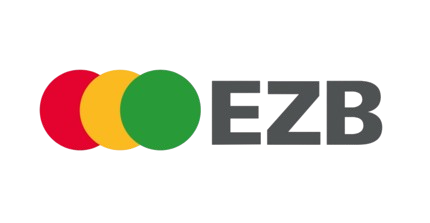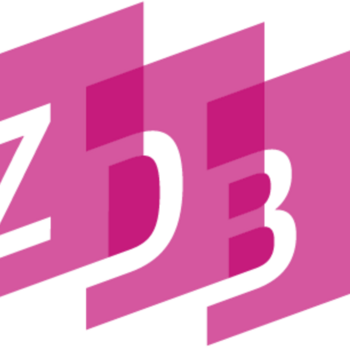Standardi zanimanja i kvalifikacija – osnova za kvalitetan studijski program – Primjer nastavničkih studijskih programa / Occupational Standards and Qualifications - Basis for a Quality Study Program - An Example of Teacher Study Programs
DOI:
https://doi.org/10.48052/19865244.2023.1.123Keywords:
teachers, study program, occupational standard, qualification standardAbstract
The development of the teaching profession is considered a key prerequisite and the most important link in the process of improving and raising the quality of the educational system in BiH. The reform of education through various phases has lasted for almost two decades, it has set a number of challenges and expectations for teachers, who bear the greatest burden in the implementation of reform processes. Only quality teachers can educate holistically oriented students willing to live and nurture values, possess 21st century skills and be able to bring about change that will be geared towards development and progress. Occupational standards represent a harmonized minimum of best practice in accordance with needs occupations within the defined legal framework. Accordingly, the Occupational Standard for Teachers is a list of key tasks that teachers perform within their profession, and the competencies needed to perform them effectively. The Occupational standard represents the link between initial teacher education and the labor market, offering a clear framework for the organization and development of the teaching profession. The aim of the paper is to present the concept and methodology of developing the Teacher Occupation Standards and Teacher Qualification Standards, created in the TABLA project, to explain the role and function of occupational / qualification standards that define teacher work through prominent elements of high quality and efficient teaching in the 21st century. students at teacher training colleges. In addition to the above, the paper will explain the relationship between the Occupational / Qualification Standards and the continuum of competencies on the example of the Teacher Module - Common Core Curriculum (CPL) based on learning outcomes, which as such should be implemented in all teacher education programs. The conclusion of the paper indicates the contribution of the Teacher Occupation Standard and the Qualification Standard teachers, created in the TABLA project, in defining a clear and uniform training of teachers during initial education, and establishing a transparent and objective system for monitoring, self-assessment, teacher evaluation and their advancement in the profession.
References
Bjekid, D. 2011. Kompetencije i uloge nastavnika u tradicionalnoj i elektronski podržanoj nastavi, Nastava u tradicionalnom i e-obrazovanju. [online] dostupno na: <http://elab.tfc.kg.ac.rs/moodle/mod/book/view.php?id =10587 & chapterid = 3772>. [22. jula 2021]
Bjekid, D. i Zlatid, L.,2006. Komunikacijska kompetencija nastavnika tehnike. Zbornik radova Tehničkog fakulteta u Čačku, str. 471–478
Commission of the European communities. 2008: Improving competences for the 21st Century: An Agenda for European Cooperation on Schools. [online] dostupno na: <http://ec.europa.eu/education/school21/sec2177_en.pdf > [30.8.2020]
European commission: Education and culture. 2005. Common European Principles for Teacher Competences and Qualifications. [online] dostupno na: <http://ec.europa. Eu /education/ policies/2010/ doc/principles_en.pdf > [1.9 2020]
European commission: Education and culture. 2008.The European Qualifications Framework for Lifelong Learning (EQF). [online] dostupno na: < http: //ec. europa. eu/dgs/ education_culture/publ/pdf/eqf/broch_en.pdf > [1.9 2020]
European trade union committee for education. 2008. Teacher Education in Europe: An ETUCE Policy Paper. [online] dostupno na: < etuce. homestead. com /Publications 2008/ETUCE_ Policy Paper_en_web. pdf > [5. 9. 2020.]
Grandid, R. i Stipid, M.,2011. Profesionalni razvoj nastavnika – put do kvalitetnog obrazovanja, Pedagoška stvarnost, 57(3–4), str.198–209.
OECD (2005). The Definition and Selection of Key Competencies. Executive Summary. [online] dostupno na: < http://www.oecd.org/ pisa/35070367.pdf > [24. 8. 2020.]
OECD. 2007. Education and Training Policy: Qualificationons Systems –Bridges to lifelong learning. Paris: OECD. [online] dostupno na: [26. 8. 2020.]
Sanders, W.L., & Rivers, J.C.,1996. Cumulative and residual effects of teachers on future student academic achievement (Research Progress Report). Knoxville, TN: University of Tennessee Value-Added Research and Assessment Center.
The teaching profession in Europe. 2007: profile, trends and concers – Report IV: Keeping teaching attractive for the 21st century; Brussels: Eurydice Brussels. 392 final.
Villegas-Reimers. E., 2003. Teacher professional development: an international review of the literature. Paris: UNESCO International Institute for Educational Planning.
Rangelov Jusović, R. i Vizek Vidović, V. 2013. ATEPIE projekt Sarajevo. [online] dostupno na: [11.6 2021]
Downloads
Published
How to Cite
Issue
Section
License
Copyright (c) 2023 Pregled: časopis za društvena pitanja / Periodical for social issues

This work is licensed under a Creative Commons Attribution-NonCommercial 4.0 International License.














